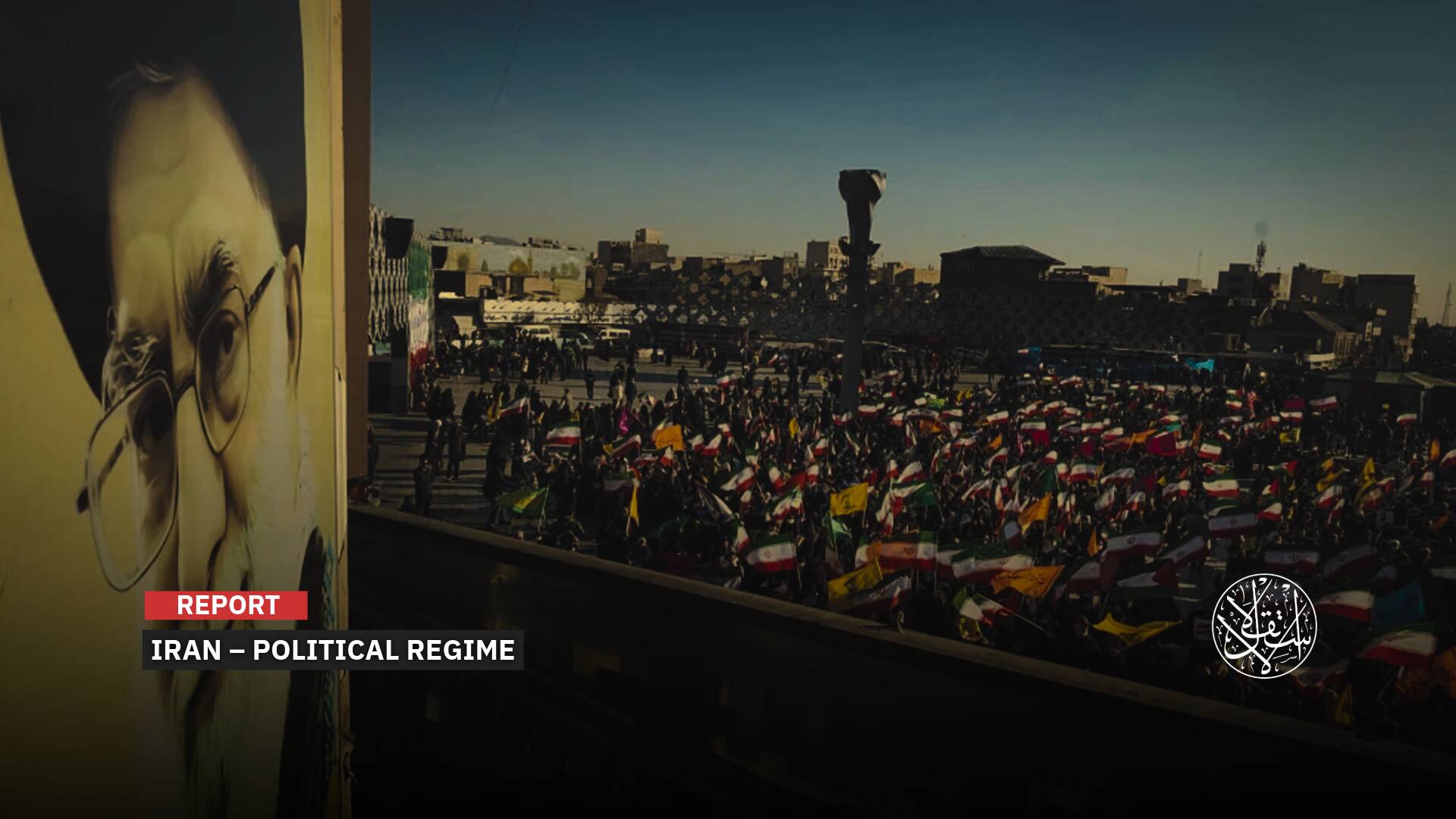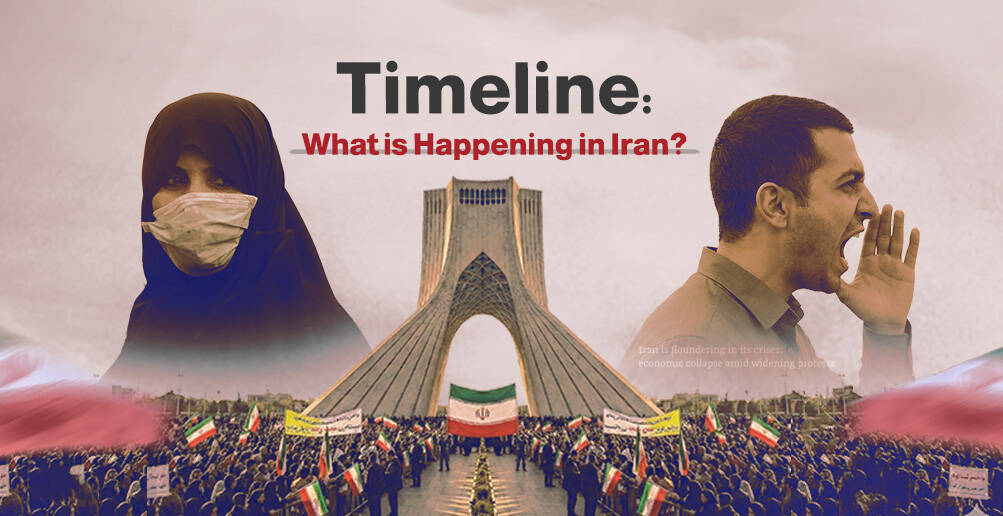How the Right to Protest Is Restricted in Western Democracies
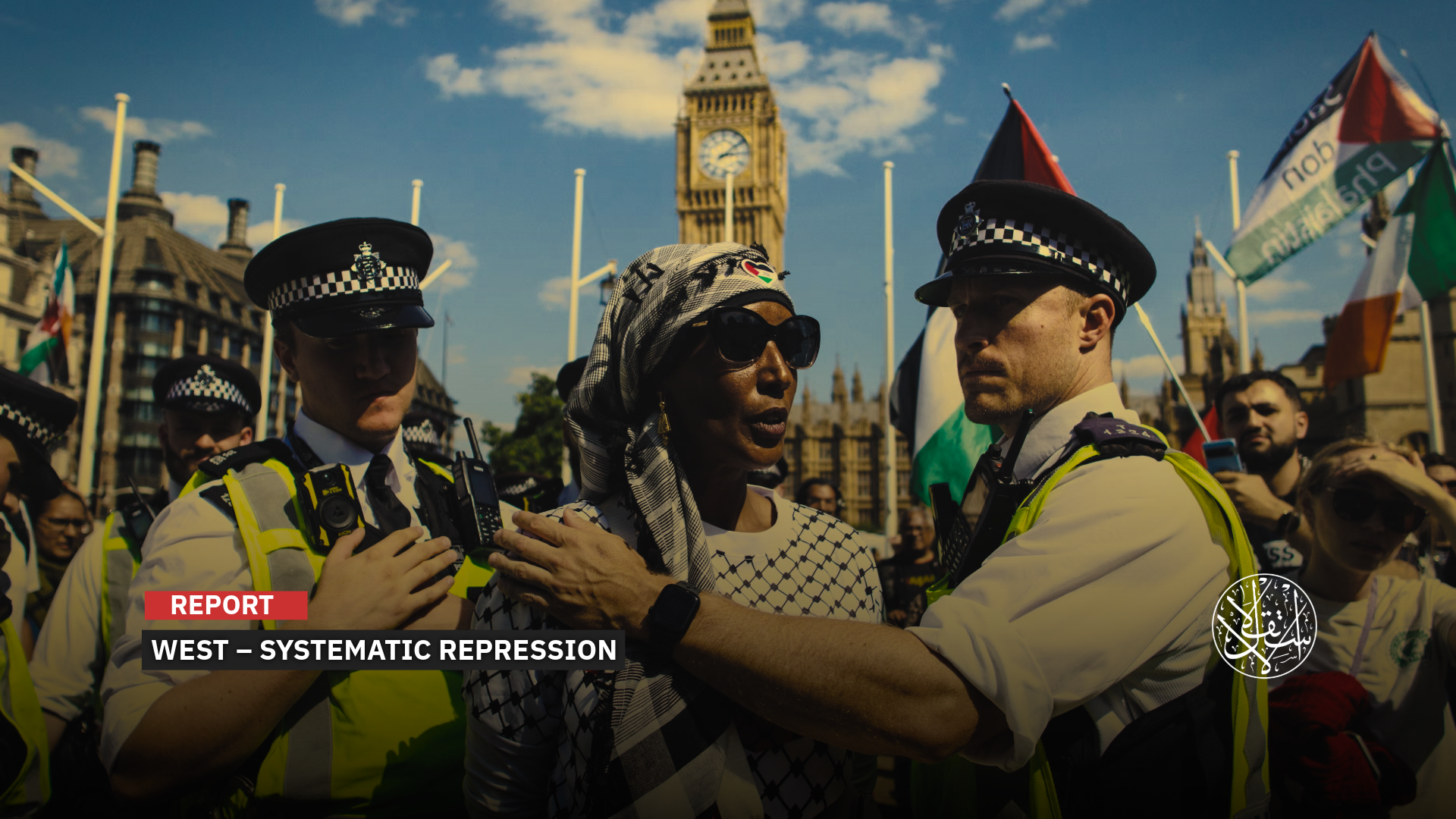
“Discriminatory legislation in the West is used as a tool to restrict freedom of expression and demonstration.”
At a time when Western democracies are facing security and political challenges, an international human rights report finds that the right to protest is under continuous and systematic attack, particularly in the UK, the U.S., France, and Germany, where discriminatory legislation is used as a tool to restrict freedom of expression and demonstration.
The report, which relied on open sources, firsthand testimonies, and reports from international bodies covering the period from October 2023 to September 2025, monitored official policies, new laws, and legislative proposals that could be used to suppress civil and community movements, particularly those supporting the Palestinians.
Academic freedoms were also among the areas of risk identified by the report, with professors and students subject to censorship or sanctions for their political views or support for certain issues.
In the U.S., for example, protesters were prosecuted on charges related to incitement or unauthorized assembly, while in France, protests were banned in some cities or activist associations were dissolved.
In Germany, pro-Palestine slogans and posters have faced legal and police coercion under the pretext of anti-Semitism, leading entire communities to feel that protest has become a systematic threat rather than a constitutionally protected right.
Legislative Restrictions
A report by the International Federation for Human Rights (FIDH) shows that protests are under sustained attack and repression in Western countries, highlighting the increasing criminalization of pro-Palestine demonstrations.
While laws regulating protests vary across the UK, the U.S., France, and Germany depending on the culture and legal context, the report argues that violations in these four countries represent a broader global trend of suppressing solidarity with Palestine.
It notes that governments there have turned anti-terrorism laws, as well as anti-Semitism laws, into tools to suppress dissenting voices and those supporting Palestinian rights in Gaza and the occupied West Bank.
For two years, the right to protest has been under sustained attack by successive British governments and various political parties.
There are also government policies, such as the Anti-Protest Bill introduced by the Conservative government in 2024, which was later found to be illegal.
In addition, the current Labour government's efforts to legitimize Israeli genocidal violence and continue to justify its support for Israel.
Former Home Secretary Suella Braverman described pro-Palestine demonstrations as hate marches, rhetoric that contributed to discrimination against Muslims and other ethnic groups in Britain.
The Labour Party's rise to power in July 2024 did not significantly change the official discourse, according to the report.
The party continued to link criticism of “Israel” or support for Palestine with violent antisemitism, targeting Muslims and other ethnic groups.
Recent British government data showed that hate crimes against Muslims rose by about 20%, after previous figures showed that anti-Muslim attacks increased by 73% in 2024.
Regarding legislative restrictions, the British government revived laws such as the Terrorism Act 2000 and proposed amendments to the Public Order Acts 2023, granting greater powers to the police to regulate protests and restricting freedom of expression and the right to demonstrate.
As public anger over the Israeli war on Gaza continued and thousands took to the streets in pro-Palestine demonstrations, the Labour government issued a decision to ban the 'Palestine Action' protest group.
Although the government recently condemned the rise in hate crimes against Muslims, community leaders criticized the weak official response.
Last week, British Prime Minister Keir Starmer called for the cancellation of non-British demonstrations scheduled to mark the second anniversary of the October 7 attack.
His call was widely criticized by protest organizers, who considered it to conflate the actions of “Israel” with those of Jews around the world.
Civil liberties organizations have also expressed concern about the possibility of further restrictions on the right to demonstrate.
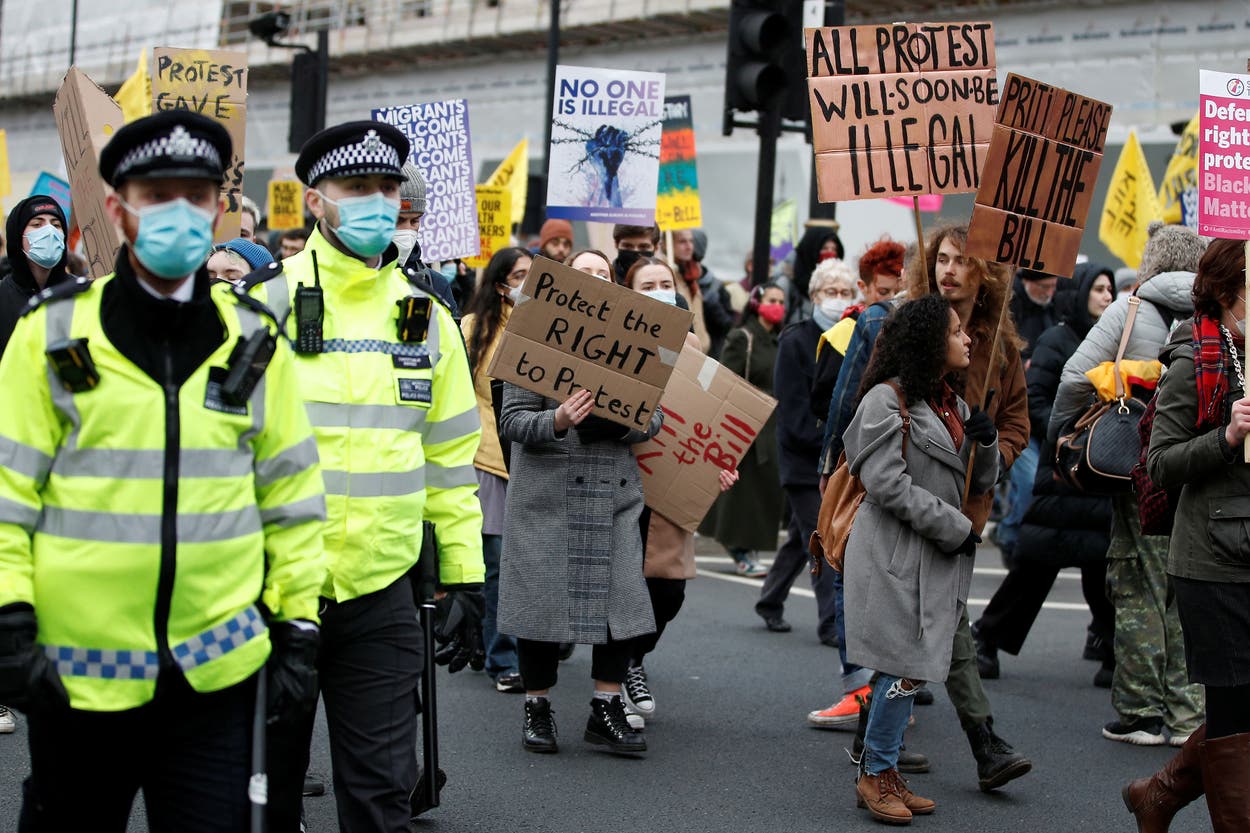
Increasing Threats
The freedom to demonstrate is a fundamental right enshrined in international conventions such as the Universal Declaration of Human Rights and the International Covenant on Civil and Political Rights.
These frameworks require states to protect the rights to peaceful assembly and expression, provided that any legal restrictions are justified and necessary, within narrow limits, and proportionate to ensure public safety or security, and not intended to suppress dissenting opinions or silence dissent.
In the UK, amendments to the Anti-Terrorism Act 2000 and the Public Order Act 2023 face constitutional challenges, especially with the European Court of Human Rights, which may consider complaints related to violations of freedom of expression or freedom of assembly or permitting indiscriminate searches during demonstrations.
The Council of Europe's Commissioner for Human Rights recently wrote to the UK Home Secretary requesting a comprehensive review of legislation relating to protests, warning that legislation designed to combat terrorism should not be used as a sword to threaten fundamental rights and freedoms.
In the U.S., solidarity movements with Palestine have been met with arrests, legal proceedings, and increasing threats.
Constitutional amendments and judicial tradition there provide strong protections for the right to demonstrate and express expression.
However, the increasing use of state and local security laws to restrict this right, by imposing conditions on rallies or even banning them, sometimes under security pretexts, has raised concerns among human rights organizations about a shift toward official censorship.
In May, the Interior Ministry announced it would dissolve Urgence Palestine, the largest Palestinian organization in France, alleging that it tolerated Hamas, called for an uprising in France, and incited hatred, violence, and discrimination against Jews.
Urgence Palestine disputed these allegations, saying the move to dissolve it was politically motivated and part of a broader crackdown on pro-Palestinian activism. The organization has not yet been dissolved.
Marie Laure Geoffray, Amnesty International France's head of human rights advocacy, said there has been significant repression and silencing of voices in solidarity with Palestine, and this continues.
French authorities have been criticized for their crackdown on solidarity demonstrations, including banning demonstrations in some cities.
In Germany, police tactics have been criticized as excessive, and decisions banning certain slogans and symbols under the pretext of combating hatred or maintaining security have sparked widespread controversy.
When Berlin police were asked this month about crackdowns on pro-Palestinian activism following an alleged brutality case against an Irish protester, they said they had opened an investigation into the officer, but denied any pattern of violence or civil rights violations.
Artists and intellectuals pointed to the widespread fear in Germany of supporting the Palestinian cause, where any criticism of Israeli tactics in Gaza can quickly be denigrated as anti-Semitic, leading to the withdrawal of awards, positions, and public funding.
The International Federation for Human Rights (FIDH) issued a report calling on the governments concerned to repeal or amend laws used to dilute the right to protest, warning that the increasing normalization of exceptional measures in security laws could lead to the erosion of permanent, not temporary, freedom.
Observers stated in the report that the Palestine solidarity protests were a practical test of how Western governments deal with public pressure.
They added that the response, in many cases, has been security- or legal-based, limiting the spaces in which citizens can freely express themselves.
Organizations such as Human Rights Watch and Amnesty International have also condemned measures that have banned marches or removed permits, arrested groups of peaceful protesters, or granted police sweeping powers of surveillance and monitoring.
These human rights activists called for ensuring the protection of peaceful demonstrators, ensuring transparency on the part of authorities in issuing protest permits, and ensuring independent judicial oversight of the use of force during demonstrations.
UN member states and organizations such as the UN High Commissioner for Human Rights and the Special Rapporteur on Freedom of Opinion and Expression emphasized that the right to protest should never be used solely as a means of security policy.
They noted that a balance must be maintained between protecting public security and protecting freedom of expression and peaceful assembly, in accordance with international standards.
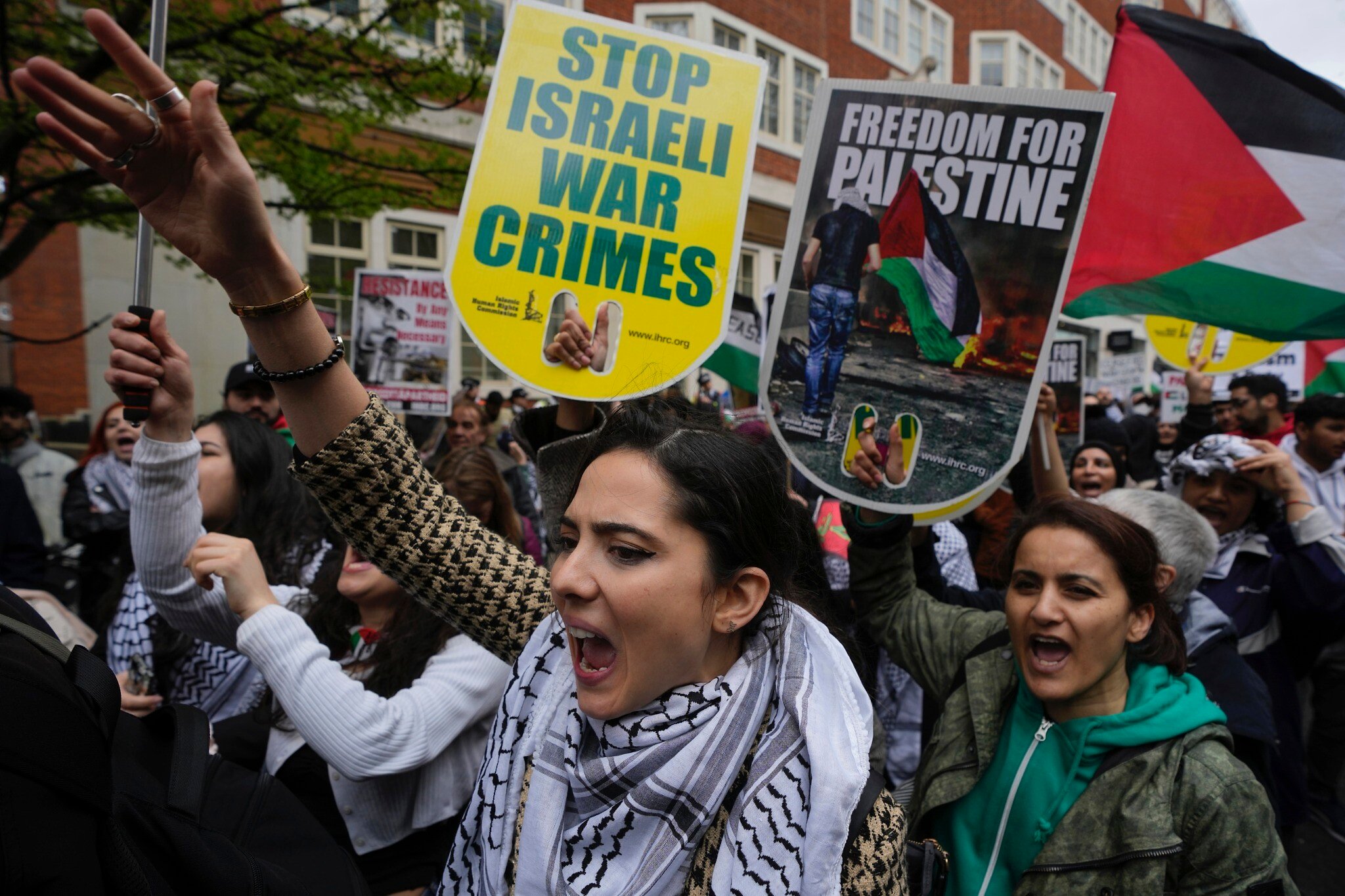
Security Pressure
With the proliferation of laws restricting demonstrations and police actions that sometimes use force, citizens feel that peaceful expression has become a risk, and ethnic and religious profiling among some groups is on the rise.
For example, the participation of Muslims and ethnic minorities in pro-Palestinian demonstrations is viewed as a security threat, exacerbating social fear and isolation.
Journalists and civil society also suffer indirect pressure, whether through increased permits, legal threats, or media representation that portrays those who demonstrate as either extremists or revolutionaries.
This situation discourages some citizens from participating in protests for fear of legal or professional repercussions.
With the new laws in effect, peaceful protests are expected to face further restrictions on obtaining permits, as well as denial of access to protest sites, and possibly restrictions on symbols, slogans, and press coverage.
These measures could affect societal capacity to lobby politically and influence public policy, making civil expression less effective and less accessible to decision-makers.
Reports confirm that this attack on the right to protest is not surprising, but rather the culmination of several years of legislative and security pressure.
Since the September 11, 2001, attacks, the U.S. has significantly expanded its counterterrorism legislation, impacting civil rights and peaceful assembly.
In the UK, recent years have seen repeated amendments to security laws, such as the Crime, Drugs and Courts Act 2022.
This legislative buildup has created a climate where security laws are used not only against violence but also against peaceful expression.
In France and Germany, anti-terrorism and anti-Semitism legislation has sometimes been used to justify banning demonstrations or imposing restrictions on freedom of expression.
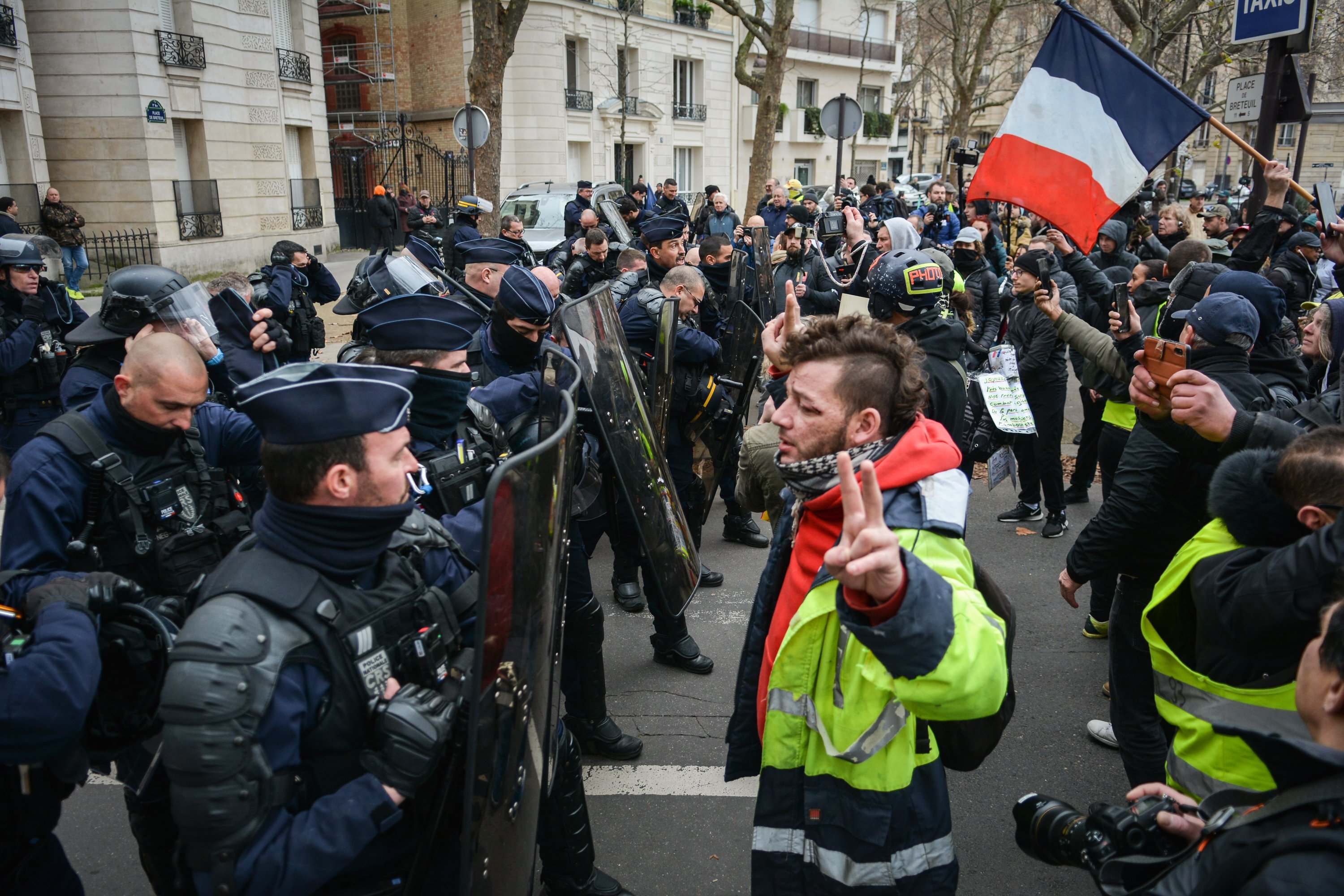
Political analyst and lawyer Hassan Aswad explained to Al-Estiklal that “the current situation in Western countries poses a test for democracies that profess a commitment to human rights and freedom of expression, but today face a contradiction between political security and the current security of civil rights and the disruption of freedom of protest.”
“When peaceful expression is suppressed, it not only stifles the voices of protesters, but also undermines trust between society and government, increases feelings of injustice, and may encourage extremism, especially when citizens feel they have no other means to express their anger,” he added.
“The distinction between governments that consider themselves liberal and those seeking to impose a strict reality disappears when security laws are used as a tool to restrict basic freedoms, especially peaceful assembly, which, if taken away now, may not be easily restored,” he said.
In conclusion, he concluded, “Hope remains pinned on the mobilization of human rights and judicial organizations, and the role of civil society and the media in exposing these violations. In addition, society must recognize that the freedom to protest is not a luxury or an option in democracy, but rather one of its pillars.”





